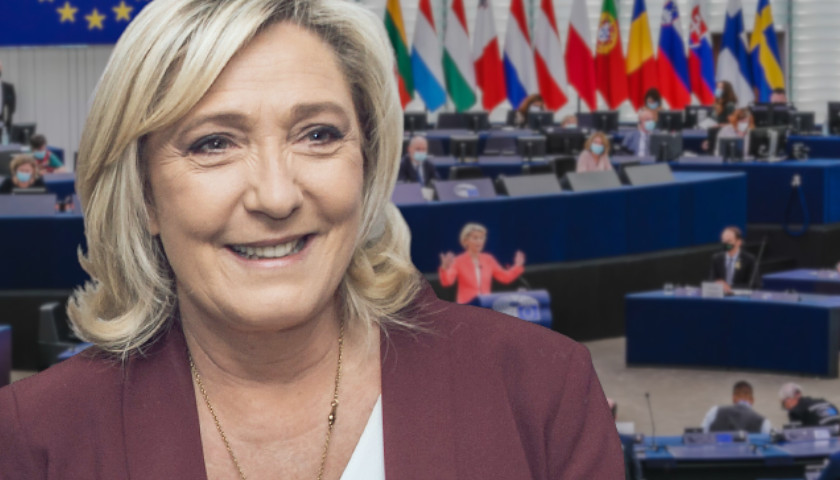by Thomas Catenacci
The European Union has delayed its much-anticipated ban on Russian oil imports to give French President Emmanuel Macron a better chance of winning reelection, The New York Times reported.
The EU embargo, which leaders have reportedly debated behind closed doors for over a month and are currently drafting, is expected after April 24, the date of the second and final round of France’s presidential election, European officials told the NYT. European leaders want to ensure right-wing populist candidate Marine Le Pen isn’t given a polling advantage when gasoline prices rise following a ban announcement, the officials said.
Macron won the first round of voting earlier in April with 27.8% of the vote compared to Le Pen’s 23.2%, the second-highest vote share, Politico reported. Le Pen, though, has seen her popularity grow over the last month, polls showed, and could receive a boost from higher gas prices.
 “Going cold turkey on fossil fuels from Russia would cause a massive, instant disruption,” German ambassador to the U.S. Emily Haber said, according to the NYT. “You cannot turn modern industrial plants on and off like a light switch. The knock-on effects would be felt beyond Germany, the EU’s economic engine and 4th largest economy in the world.”
“Going cold turkey on fossil fuels from Russia would cause a massive, instant disruption,” German ambassador to the U.S. Emily Haber said, according to the NYT. “You cannot turn modern industrial plants on and off like a light switch. The knock-on effects would be felt beyond Germany, the EU’s economic engine and 4th largest economy in the world.”
President Joe Biden announced that the U.S. would prohibit imports of all Russian energy during a speech on March 8. The action was in response to Russia’s ongoing invasion of Ukraine.
Russia is by far the EU’s largest natural gas supplier, sending about 155 billion cubic meters to the continent in 2021, most of which was sent via pipeline, according to the Columbia Climate School. Russian natural gas exports account for about 45% of EU natural gas imports.
The EU also relies more on oil from Russia than any other nation.
Russia’s federal government relies upon its oil and gas industry to fund 40% of its annual budget. Because of Russia’s reliance on fossil fuel production to fund its operations, environmental and humanitarian groups have urged the EU to cut off its imports from the Russian oil and gas sector.
“This situation cannot continue. It is morally and politically untenable for Europe to fund Putin’s war machine – paying for the same missiles and bombs that are raining down on Ukrainian schools and hospitals – at the same time as supposedly uniting to stop Putin through sanctions,” a March report from the European group Switch Off Putin stated.
“There is only one solution,” it continued. “We must cut off this torrent of money we are sending to the Kremlin by immediately stopping our imports of Russian fossil fuels.”
– – –
Thomas Catenacci is a reporter at Daily Caller News Foundation.
Background Photo “EU Meeting” by European Parliament. CC BY 2.0.





